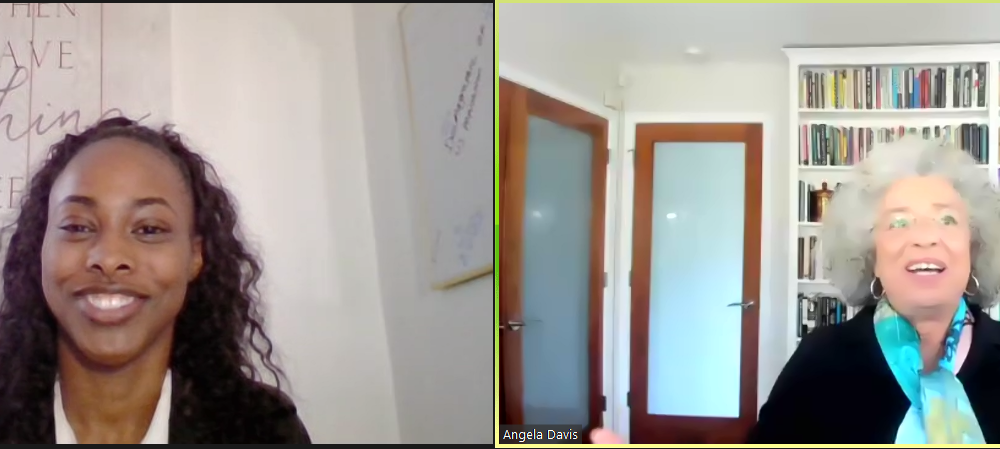Long Beach State’s Associated Students, Inc. hosted the second annual Students of Color Conference Friday, encouraging students from historically marginalized communities to embrace their identities and become agents of change in society.
This year’s theme, titled “Still We Rise: Reclaiming Our Power,” focused on “fostering an understanding of historical context, solidarity and community-building,” according to the flyer, and featured guest speakers and interactive workshops. The free event was open to CSULB students only.
Workshops included a focus on racial capitalism as well as maintaining mental health for communities of color. The conference also included spoken word poetry and a Q&A with Angela Davis, political activist, scholar and founder of the Committees of Correspondence for Democracy and Socialism.
Davis is well-known for her connection to the 1970 trial of the Soledad Brothers, three Black inmates of Soledad Prison who had been charged with killing a white prison guard. Guns registered to Davis were used in a takeover of the courtroom by the brother of inmate George Jackson, Jonathan, that left four dead. Davis fled after being charged with murder, kidnapping and conspiracy and became listed as one the FBI’s 10 Most Wanted.
She was acquitted of all charges in 1972 after being incarcerated for over a year.
During the Q&A, Davis recalled her first experience with the FBI in 1950, when some of her family’s friends were being followed for being part of the Communist Party. Even the children were followed, Davis said.
“I got to witness the impact of state repression,” Davis said. “I got to learn how to deal with the FBI when I was six years old being told, never talk to the FBI, don’t talk to the FBI. If they ask you a question, don’t answer.”
In her youth, Davis said, she felt inspired by activist communities to fight for social justice and has faith that today’s youth will enact change.
“I never saw myself as a single individual,” Davis said. “I think my own way of imagining myself in this world is to recognize the importance of community, just as I was inspired when I was young by the activist communities then. I remain inspired by activist communities, generations of activist communities, and right now I can say that I am most inspired by all the young people who are doing all of this incredible stuff.”
Another speaker, Mikki Kendall, discussed the importance of listening to one another to help restore peace in society.
Kendall, author of “Amazons, Abolitionists, and Activists: A Graphic History of Women’s Fight for Their Rights” and “Hood Feminism: Notes from the Women That a Movement Forgot,” feels that “building takes listening, and not everyone’s needs are going to be the same as the ones you have.”
“Sharing is not just caring; sharing is literally how we survive,” Kendall said. “None of us can float around on this island of humanity and not need to reach out to help others, and in a token, we should be reaching out to help others as we go.”
A United States Army veteran, Kendall said that American history classes often neglect to teach the full history, something she feels only is sometimes addressed in higher-level education.
“We are repeating the mistakes because we don’t know the history,” she said. “And we are not teaching it in any functional way, K-12, in America. You really learn history if you go to the right college and you take the right classes. And you can have these really in-depth discussions about history with these people where they will argue endlessly because the history they learned was wrong.”




